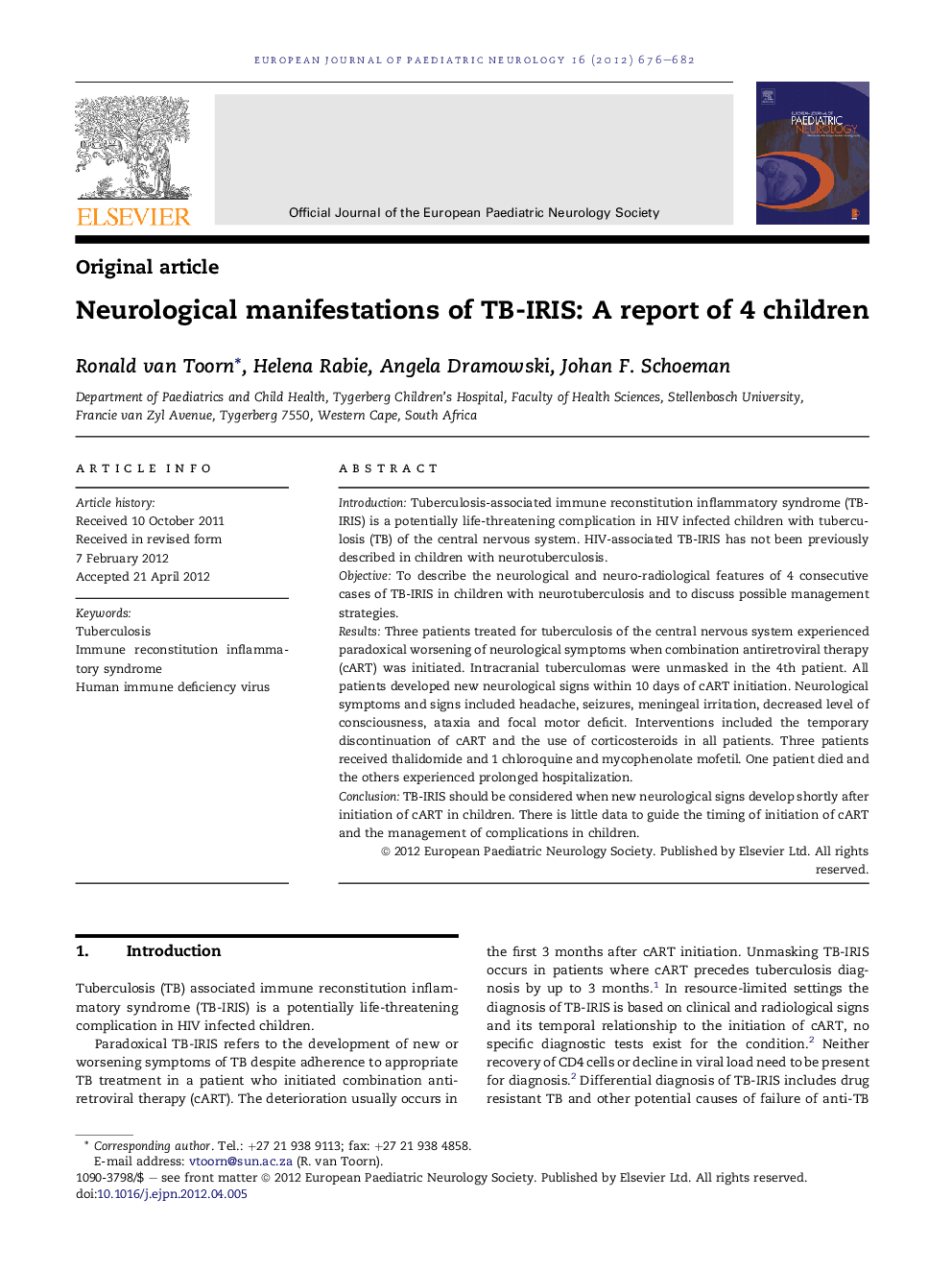| Article ID | Journal | Published Year | Pages | File Type |
|---|---|---|---|---|
| 3053909 | European Journal of Paediatric Neurology | 2012 | 7 Pages |
IntroductionTuberculosis-associated immune reconstitution inflammatory syndrome (TB-IRIS) is a potentially life-threatening complication in HIV infected children with tuberculosis (TB) of the central nervous system. HIV-associated TB-IRIS has not been previously described in children with neurotuberculosis.ObjectiveTo describe the neurological and neuro-radiological features of 4 consecutive cases of TB-IRIS in children with neurotuberculosis and to discuss possible management strategies.ResultsThree patients treated for tuberculosis of the central nervous system experienced paradoxical worsening of neurological symptoms when combination antiretroviral therapy (cART) was initiated. Intracranial tuberculomas were unmasked in the 4th patient. All patients developed new neurological signs within 10 days of cART initiation. Neurological symptoms and signs included headache, seizures, meningeal irritation, decreased level of consciousness, ataxia and focal motor deficit. Interventions included the temporary discontinuation of cART and the use of corticosteroids in all patients. Three patients received thalidomide and 1 chloroquine and mycophenolate mofetil. One patient died and the others experienced prolonged hospitalization.ConclusionTB-IRIS should be considered when new neurological signs develop shortly after initiation of cART in children. There is little data to guide the timing of initiation of cART and the management of complications in children.
